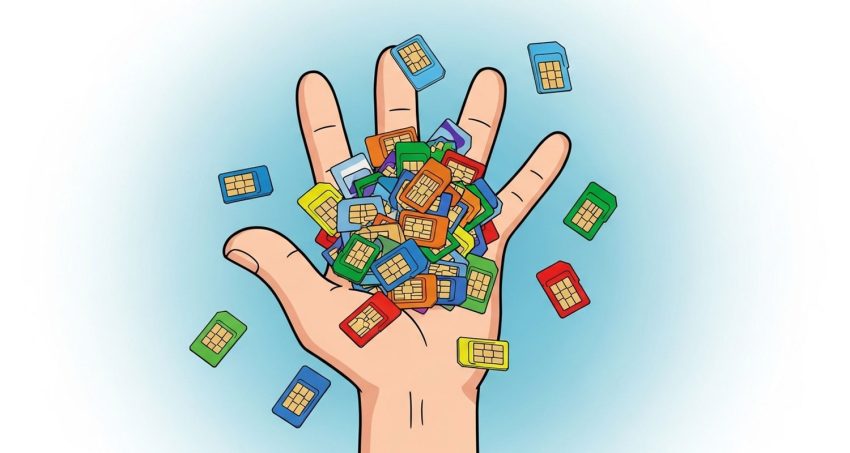For years, eSim has been touted as the logical next step in mobile connectivity. Instead of inserting a small plastic card into a tray, a user downloads a digital profile from their operator, often by scanning a QR code. Apple has been quietly championing eSim since the iPhone XS in 2018, but with the iPhone 17 line-up, the company is effectively signalling that the future of connectivity is embedded, virtual and plastic-free. The new, ultra-slim iPhone 17 Air doesn’t even have a physical Sim slot at all, a move Apple touted as a way of maximising space for the battery.
The shift can’t happen soon enough!
This is not just a matter of convenience. It’s also an environmental story. Sim cards are small, but the churn is vast. In South Africa, tens of millions of Sim cards are issued and replaced every year, mainly because of customers swapping between networks to chase better deals. Each of those tiny cards is made of plastic and most end up in landfill – or in our rivers and oceans.
TechCentral has reported extensively on the environmental cost of Sim churn in South Africa, highlighting how the industry generates tons of unnecessary plastic waste annually. Unlike larger pieces of consumer electronics, Sim cards rarely find their way into recycling operations. They are too small, too cheap and too easy to toss away.
By shifting users onto eSims, Apple is well positioned to push the industry globally towards a future where billions of these plastic cards are never manufactured in the first place. Apple has already made sustainability a central plank of its brand, from recycled aluminium in MacBooks to carbon-neutral packaging. Even if you believe this is little more than marketing by Apple, eliminating physical Sim cards is a logical extension of that strategy – and undoubtedly good news for the environment.
Advantages
The advantages for consumers extend beyond environmental gains. Anyone who has fumbled with swapping Sim cards in a foreign airport knows how clunky roaming can be. With eSim, a traveller can land in London, Nairobi or Shanghai and, within minutes, download a local operator profile to their phone. They can even do it before they leave home – no need to find a retail store, no need for plastic packaging and no need to carry a pin to eject a tray.
Apple said in Tuesday’s keynote that it has already partnered with global carriers to make eSim provisioning seamless, and the trend is accelerating. South African operators, too, have been gradually adding eSim support, as have mobile virtual network operators like Melon Mobile. With Apple leaning in, pressure will only grow for the laggards to catch up.
Read: Sim card insanity in South Africa
And, yes, smartphones without Sim trays allow for more space for the battery, which in the case of the ultra-slim iPhone Air is critical. Battery life has long been the Achilles’ heel of slim smartphones. Every fraction of a millimetre reclaimed internally is an opportunity to pack in more capacity. In the case of the iPhone Air, Apple has managed to combine an ultra-thin design with a battery that, on paper, rivals chunkier predecessors. The removal of the Sim slot is one quiet but significant factor behind this feat.
But Apple has never shied away from reshaping industry norms. Just as it killed the headphone jack (some users still miss the jack) and nudged the world towards Bluetooth headphones and earbuds, Apple is now wielding its market power to make eSim technology mainstream. Consumers grumbled when AirPods replaced wired headphones; now they barely remember life before Bluetooth. Expect a similar arc with eSim.
Read: South Africa must tackle Sim card fraud to escape FATF grey list
For South Africa, the transition will not be without challenges. Regulatory frameworks, operator readiness and consumer education all have to align. But the writing is on the wall: physical Sim cards are living on borrowed time. The country’s high levels of Sim churn – and the environmental toll that comes with it – make the case for eSim adoption stronger here than almost anywhere else. – © 2025 NewsCentral Media
Get breaking news from TechCentral on WhatsApp. Sign up here.
